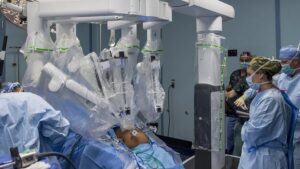
Addiction is a complex and challenging condition that affects individuals and their families in profound ways. Recovery is a journey, often involving multiple phases to help individuals overcome their addiction and rebuild their lives. Understanding these phases can provide clarity and hope for those considering or currently in an addiction treatment program. In this blog post, we’ll break down the different stages of an addiction treatment program, focusing on what to expect and how each phase contributes to recovery.
1. Assessment and Evaluation
The first phase in any addiction treatment program in Massachusetts is assessment and evaluation. During this phase, individuals seeking help will undergo a comprehensive assessment conducted by professionals at an addiction treatment center in Massachusetts. This evaluation typically includes:
- Personal History: Gathering information about the individual’s history with substance use, including the type of substances used, duration, and any previous attempts at recovery.
- Medical and Psychological Assessment: Identifying any co-occurring mental health disorders or physical health issues that might affect treatment.
- Social and Environmental Factors: Understanding the individual’s social environment, including family, work, and social dynamics, which can influence their recovery journey.
This thorough assessment helps create a tailored treatment plan that addresses the unique needs of each individual.
2. Detoxification
Once the assessment is complete, the next phase is detoxification, commonly referred to as detox. This phase focuses on safely managing withdrawal symptoms as the body clears itself of the addictive substance. Detoxification is often the first step in rehab programs in Massachusetts and can take place in various settings. It
is an essential phase as it helps stabilize the individual physically and mentally, preparing them for the next stages of treatment.
3. Rehabilitation
After detoxification, individuals move into the rehabilitation phase. This is where the core of addiction treatment takes place. Rehabilitation programs focus on addressing the underlying causes of addiction and developing coping strategies to maintain sobriety. Rehabilitation can include:
- Individual Therapy: One-on-one sessions with a therapist to explore personal triggers, emotional challenges, and behavioral patterns contributing to addiction.
- Group Therapy: Participating in group sessions with others who are also in recovery. This provides peer support, shared experiences, and a sense of community.
- Family Therapy: Involving family members in therapy to repair relationships and educate them about addiction and recovery.
Rehabilitation programs at an addiction treatment center in Massachusetts are designed to help individuals understand their addiction, develop new coping skills, and build a supportive network.
4. Aftercare and Relapse Prevention
- Continued Therapy: Ongoing individual or group therapy sessions to address any challenges and reinforce coping strategies.
- Support Groups: Participation in support groups such as Alcoholics Anonymous (AA) or Narcotics Anonymous (NA), where individuals can find continued support and accountability.
- Sober Living Environments: For those transitioning back to independent living, sober living homes provide a structured environment that supports sobriety and helps individuals reintegrate into daily life.
Aftercare ensures that individuals have the tools and support needed to navigate life’s challenges while maintaining their commitment to recovery.
5. Long-Term Recovery
Long-term recovery is an ongoing process that extends beyond the formal phases of treatment. It involves continued personal growth, ongoing self-care, and regular engagement with support systems.
Individuals in long-term recovery often:
- Set Personal Goals: Establish and work towards personal and professional goals that support a healthy, balanced lifestyle.
- Engage in Healthy Activities: Participate in activities that promote physical and emotional well-being, such as exercise, hobbies, and community involvement.
- Maintain Support Networks: Stay connected with friends, family, and support groups to receive encouragement and guidance.
Conclusion
Understanding the different phases of an addiction treatment program provides a clearer picture of what to expect and how each stage contributes to recovery. From initial assessment and detoxification to rehabilitation, aftercare, and long-term recovery, each phase plays a crucial role in helping individuals overcome addiction and build a healthier future. If you or a loved one is considering an addiction treatment program, exploring options at an addiction treatment center in Massachusetts can be a positive step towards a successful recovery journey. Remember, recovery is a continuous process, and support is always available to guide you through each phase.






